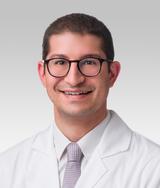Inflammation/Immunology
The role of the immune system and contribution of inflammation to cardiovascular disease, atherosclerosis, demyelinating disease, cancer and host response to pathogens is a major area of interest in the department. Several groups are interested in inflammatory pathways associated with cardiovascular damage and repair including the development of fibrosis.
Learn more about our work below.
Weiguo Cui LabStudying the differentiation, function, and epigenetic regulation of T cells in various inflammatory settings
Studying the differentiation, function, and epigenetic regulation of T cells in various inflammatory settings
Research Overview
The Cui Lab studies T cell biology focusing on the differentiation, function, and epigenetic regulation of T cells in various inflammatory settings, including acute and chronic viral infections, autoimmune disorders, and cancer. T cells are members of the adaptive immune system and are critical for defense against bacteria, viruses, and malignant cells. The Lab aims to better understand how T cells respond to different inflammatory stimuli using murine models of acute and chronic viral infection, type 1 diabetes, melanoma, and bladder cancer.
Current Research Interests
- T cell differentiation in chronic infection
- Adoptive cell transfer for cancer
- T cell memory
For more information, visit Dr. Cui's faculty profile or the Cui laboratory site.
Publications
View lab publications on the National Library of Medicine.
Contact
Email Dr. Cui
Deyu Fang LabStudying molecular networks in the regulation of immune response and autoimmunity
Studying molecular networks in the regulation of immune response and autoimmunity
Research Interests
Our research goal is to identify the therapeutic molecular targets for the treatment of autoimmune diseases particularly of rheumatoid arthritis (RA) and type 1 diabetes (T1D).
In our laboratory, we use genetic, proteomic, molecular biology and immunological approaches to dissect the molecular networks underlying the regulation of immune response and autoimmunity. Several specific genes that are critical for immune regulation and autoimmune diseases have been identified in our laboratory. Small molecules that modulate the functions of these newly identified genes can potentially be used to treat type 1 diabetes and rheumatoid arthritis.
The current ongoing research projects, in my laboratory are:
1. Sirt1, a type-iii histone deacetylase, is required for immune tolerance.
2. The ubiquitin E3 ligase Synoviolin, is a therapeutic target for RA.
3. The tyrosine kinase c-Abl in T-cell differentiation and allergic lung inflammation.
4. The roles of RoxP3 in regulatory T cells.
5. Ubiquitination in aging and autoimmunity.
6. Novel microRNAs in immune tolerance and autoimmunity.
For more information, visit Dr. Deyu Fang's faculty profile or laboratory site.
Publications
See Dr. Fang's publications in PubMed.
Contact
William Muller LabFocusing on the emigration of leukocytes across vascular endothelial cells in the process of inflammation
Focusing on the emigration of leukocytes across vascular endothelial cells in the process of inflammation
Research Description
Most diseases are due to or involve a significant component of inflammation. My lab studies the inflammatory response at the cellular and molecular level. We are focused on the process of diapedesis, the "point of no return" in inflammation where leukocytes squeeze between tightly apposed endothelial cells to enter the site of inflammation. We have identified and cloned several molecules that are critical to the process of diapedesis (PECAM (CD31), CD99, and VE-cadherin) and are studying how they regulate the inflammatory response using in vitro and in vivo models. We have recently described the Lateral Border Recycling Compartment, a novel para-junctional organelle that contains PECAM and CD99 and is critical for diapedesis to occur. We are currently investigating how this compartment regulates diapedesis in the hope of finding novel and highly specific targets for anti-inflammatory therapy.
The “holy grail” of therapy is to develop selective anti-inflammatory agents that block pathologic inflammation without interfering with the body’s ability to fight off infections or heal wounds. By understanding how endothelial cells at the site of inflammation regulate leukocyte diapedesis, we are hoping to do just that. We have identified several molecules critical for diapedesis in acute and chronic inflammatory settings that can be genetically deleted or actively blocked to markedly inhibit clinical symptoms (e.g. in a mouse model of multiple sclerosis) and tissue damage (e.g. in a mouse model of myocardial infarction) without impairing the normal growth, development, and health of these mice. Our inflammatory models include atherosclerosis, myocardial infarction, ischemia/reperfusion injury, stroke, dermatitis, multiple sclerosis, peritonitis, and rheumatoid arthritis. We are also using 4-dimensional intravital microscopy to view the inflammatory response in real time in living animals.
Basic questions/issues that the work seeks to address:- What are the molecular mechanisms and signaling pathways that endothelial cells use to regulate the inflammatory response?
- How can we therapeutically treat inflammatory diseases without compromising the ability of the immune system to respond to new threats?
- Do circulating tumor cells use the same mechanisms as leukocytes to cross blood vessels when they metastasize?
Our Facilities
We have a high-resolution Perkin Elmer ULTRAVIEW Vox System spinning disk laser confocal microscope in the upright configuration on an Olympus BX51WI fixed stage in my laboratory designed for intravital microscopy. We can image the ongoing inflammatory response and response to our drugs in real time in anesthetized mice with unprecedented temporal and spatial resolutions. We presently image inflammation in the cremaster muscle, intestine, and brain.
Of interest to History of Science buffs, we have the original Zeiss Ultrafot II microscope used to film the first movies of neutrophils ingesting bacteria. As you might expect from something built by Zeiss in the first half of the 20th century, the optics are still fantastic and we use it in our daily work.
Our Successes
Recently we made two major discoveries in endothelial cell inflammatory signaling: Identification of TRPC6 as the cation channel responsible for the endothelial cell calcium flux required for transmigration and description of the CD99 signaling pathway. Both had eluded discovery for decades.
- Watson, R.L., J. Buck, L.R. Levin, R.C. Winger, J. Wang, H. Arase, and W.A. Muller. 2015. Endothelial CD99 signals through soluble adenylyl cyclase and PKA to regulate leukocyte transendothelial migration. J. Exp. Med. 212:1021-1041.
- Weber, E.W., F. Han, M. Tauseef, L. Birnbaumer, D. Mehta, and W.A. Muller. 2015. TRPC6 is the endothelial calcium channel that regulates leukocyte transendothelial migration during the inflammatory response. J Exp Med 212:1883-1899. PMID: 26392222
Recent Awards
- AAAS Fellow, elected 2010
- Rous-Whipple Award, American Society for Investigative Pathology, 2013
- Ramzi Cotran Memorial Lecture, Brigham and Women’s Hospital, 2014
- Karl Landsteiner Lecture, Sanquin Research Center, Amsterdam, Netherlands, 2016
- Member, Faculty of 1000 Leukocyte Development Section
- American Society for Investigative Pathology (ASIP) Council
- ASIP Research and Science Policy Committee Chair
- North American Vascular Biology Organization (NAVBO) Secretary-Treasurer
Grants Won
-
NIH R01 HL046849-26 William A. Muller 08/01/91 – 05/31/20
The Roles of Endothelial PECAM and the LBRC in Leukocyte Transmigration
This study investigates how PECAM-1 and the LBRC regulate transmigration. We will investigate how PECAM ligation on endothelial cells activates TRPC6 to promote the calcium flux necessary for transmigration (Aim I). We will identify how endothelial IQGAP1 regulates transmigration by regulating targeted recycling of the LBRC (Aim II). We will identify how kinesin light chain 1 variant 1 facilitates movement of the LBRC during targeted recycling (Aim III). All of these Aims include mechanistic studies in vitro and validation studies in vivo using mouse models of ischemia/reperfusion injury in acute inflammation and myocardial infarction.
-
NIH R01 HL064774-16 William A. Muller 04/01/00 – 08/31/20
Beyond PECAM: Mechanisms of Transendothelial Migration
This study investigates the role of PECAM, CD99L2, and CD99 in transendothelial migration. Aim I will test the hypothesis that leukocytes control the molecular order of transmigration by polarizing PECAM on their leading edge and CD99 on the trailing edge during transmigration. Aim II will identify the signaling mechanisms by which CD99L2 regulates transmigration. Aim III will identify the signaling mechanisms by which CD99 regulates targeted recycling of the LBRC and transmigration downstream of Protein Kinase A. All Aims have in vitro mechanistic studies and in vivo validation studies using intravital microscopy in the cremaster muscle circulation and a murine model of ischemia/reperfusion injury in myocardial infarction.
For more information, visit the faculty profile of William A Muller, MD, PhD
Publications
View Dr. Muller's publications at PubMed
Staff
Contact
Office: Ward Building, Room 3-126
303 East Chicago Avenue
Chicago, IL 60611-3008
Phone: (312) 503-0436
Fax: (312) 503-8249
E-mail: wamuller@northwestern.edu
Lab: Ward Building 3-070 and 3-031
Lab Phone: (312) 503-5200
Lab Fax: (312) 503-2630
Ronen Sumagin LabContributions of immune cell-mediated inflammation to development and progression of colorectal cancers
Contributions of immune cell-mediated inflammation to development and progression of colorectal cancers
Research Description
Immune cells are critical for host defense, however immune cell infiltration of mucosal surfaces under the conditions of inflammation leads to significant alteration of the tissue homeostasis. This includes restructuring of the extracellular matrix and alterations in cell-to-cell adhesions. Particularly, immune cell-mediated disruption of junctional adhesion complexes, which otherwise regulate epithelial cell polarity, migration, proliferation and differentiation can facilitate both tumorigenesis and cancer metastasis. Our research thus focuses on understanding the mechanisms governing leukocyte induced tissue injury and disruption of epithelial integrity as potential risk factors for tumor formation, growth and tissue dissemination.
For publication information see PubMed and for more information see Dr. Sumagin's faculty profile page or the Sumagin laboratory site.
Contact information
Ronen Sumagin, PhD
Assistant Professor in Pathology
312-503-8144
Email: ronen.sumagin@northwestern.edu
Edward Thorp LabUncovering fundamental molecular mechanisms by which the immune system regulates wound repair, inflammation resolution, and tissue regeneration.
Uncovering fundamental molecular mechanisms by which the immune system regulates wound repair, inflammation resolution, and tissue regeneration.
Research Interests
The Edward Thorp Lab studies the crosstalk between immune cells and the cardiovascular system and, in particular, within tissues characterized by low oxygen tension or associated with dyslipidemia, such as during myocardial infarction. In vivo, the lab interrogates the function of innate immune cell phagocytes, including macrophages, as they interact with other resident parenchymal cells during tissue repair and regeneration. Within the phagocyte, the influence of hypoxia and inflammation on intercellular and intracellular signaling networks and phagocyte function are studied in molecular detail. Taken together, our approach seeks to discover and link basic molecular and physiological networks that causally regulate disease progression and in turn are amenable to strategies for the amelioration of cardiovascular disease.
Publications
For additional information, visit the Thorp Lab site or view the faculty profile of Edward B Thorp, PhD.
View Dr. Thorp's publications at PubMed
Contact
Contact the Thorp lab at 312-503-3140.
Samuel Weinberg LabIdentifying novel metabolic regulators of immunity.
Research Interests
The main goal of our laboratory is to unravel how metabolic processes in rare immune cell populations regulate the generation and function adaptive immune responses in clinically relevant contexts. Specifically, the laboratory utilizes a combination of unbiased CRISPR screening, an innovative metabolomics method, high parameter flow cytometry, single cell transcriptomics, and rigorous animal models to identify novel metabolic regulators of immune cell function in a wide range of conditions including cancer, infection and autoimmunity. These differing approaches provide complementary pathways for identifying novel immunometabolic regulators, which can be used to improve vaccination and immunotherapy strategies by utilizing metabolism as a novel modulator of immunity.
Publications
For additional information, view the faculty profile of Samuel E Weinberg.
Contact
Contact the Weinberg lab at samuel-weinberg@northwestern.edu.
Contact Us

Deyu Fang
Professor, Pathology (Experimental Pathology)


Ronen Sumagin
Associate Professor, Pathology (Experimental Pathology)


Samuel E Weinberg
Assistant Professor, Pathology (Experimental Pathology)